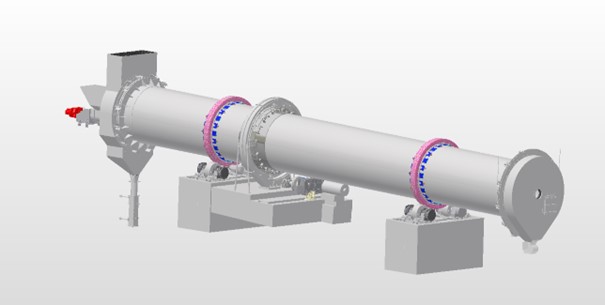The Dutch company processes tar-containing asphalt as well as construction and demolition waste into secondary raw materials that are used in road construction and for concrete mortar and legio blocks. The carcinogenic polycyclic hydrocarbons contained in the tar are removed by thermal cleaning. The cleaned residues can then be reused as high-quality raw materials in the asphalt and concrete industry.
The order from Jansen Recycling is an important step on our journey to further develop the service business of thyssenkrupp Polysius outside of the cement sector and to increase the order intake.
Bernd Kripzak Global Head of Service Operations
‘Polysius Service has developed into a full-service supplier for industries outside the cement sector, such as recycling, paper or chemicals. Activities in the areas of service, parts and plant modernisation are being further expanded. The aim is to make Polysius a household name not only in the cement industry, but also in other sectors.’
Olaf Köster, Head of Sales Europe Service
The importance of extracting primary raw materials from construction waste
50 per cent of all primary raw materials available in the EU are used in the construction sector, making it the most resource-intensive industrial sector there. At the same time, one third of all waste generated in the EU comes from this sector, but just four per cent of it is recycled into new building materials.
According to the German Federal Ministry for the Environment, around 250 million tonnes of mineral waste are generated in Germany alone each year. This accounts for around 60 per cent of the total waste generated in Germany. Mineral waste has enormous recycling potential because it can be processed into high-quality substitute mineral construction materials. These recycled building materials are already used in many areas, particularly in so-called technical structures, i.e. in the construction of roads, railway lines, paved surfaces, cable trenches, noise and visual barriers, or in building construction as recycled concrete.
